#daily posts
Text


Connecting Spinozan currents to Indigenous resurgence
While we hope some of the affinities between Spinozan currents and Indigenous worldviews are emergent throughout this chapter, we want to spend some time thinking about them directly, especially in light of the relational conceptions we have outlined above. We think the relational conceptions of anarchism and friendship are resonant with (though necessarily distinct from) the lifeways of Indigenous peoples and many other societies that ground their worlds in connectedness to each other and the places they inhabit. For instance, writer and facilitator Zainab Amadahy offers a “relationship framework” that sees all life as fundamentally interconnected:
We two-leggeds are inter-connected with each other and with other life on the planet — indeed, even to the planet itself and beyond. What we think, say, and do impacts, directly and indirectly, everything and everyone else, which also affect us. We are further impacted by ancestors and will impact generations to come. Some of us even believe the reverse; that we can impact our ancestors and that our descendants impact us. In any case, we are clearly “in relationship” whether we acknowledge, fully understand and respect the concept or not.[81]
In our conversation with Glen Coulthard, he elaborated on his notion of place-based Indigenous ethics, which he calls “grounded normativity.” Coulthard shows how Indigenous resistance and values are literally grounded in the ongoing renewal of reciprocal relationships with land:
I don’t think you come to these things on your own. We’re always kind of embedded and constituted by what’s around us. The whole book I wrote [Red Skin, White Masks] is based on this. I’m nothing; I’m just a product of the messy relationships that have formed me over time. And the point about the book is, we’ve tended to think of these relationships as anthropocentric. But we’re also shaped by the other-than-human relations that we’re thrown into, including relationships to place and land itself, and that can have an effect on our perspective; it can shape our normativities, or what we think is right or wrong.[82]
Red Skin, White Masks shows how these relational webs have been foundational for Indigenous resurgence against settler colonialism, and inexorably connected to the struggle over land:
The theory and practice of Indigenous anticolonialism, including Indigenous anticapitalism, is best understood as a struggle primarily inspired by and oriented around the question of land—a struggle not only for land in the material sense, but also deeply informed by what the land as system of reciprocal relations and obligations can teach us about living our lives in relation to one another and the natural world in nondominating and nonexploitative terms.[83]
From this perspective, settler colonialism is an attack on Indigenous bodies and lands, and on the grounded normativities that sustain them. It is an attack on Indigenous forms of life. For the same reason, Coulthard suggests that recovering, sustaining, and defending these forms of life becomes crucial to decolonization and resistance:
Repetition, doing things, shapes how you see things. And depending on what that practice is, it can double back and shape how you do things. And in a land-based context, that kind of cyclical, dual conditioning—how we produce the necessities of our lives shapes our spiritual understandings and those can, over time, double back and shape how we go about doing things in the material sense. What we’re seeing now to validate this is that Indigenous people have been dragged away from those practices violently, into other ones oriented around a different mode of production, a different way of producing the necessities of life, through resource extraction, and that is now shaping our normative worlds; what we see as right or wrong. And it’s because these long-standing practices are being disrupted. Now what we’re doing with Dechinta and other land-based practices is we’re re-establishing—in an impure form because we’re all learning again—these different normative practices and worlds. And an important part of that is our relationship with land and other-than-human kin. So prefiguration is that emphasis on the importance of practice, and shaping even what we think our ends should be … it’s a very practical ethics … That’s not to devalue it; I actually hold this more valuable than abstract normative traditions where you have to dissociate yourself from your relationships in order to come up with pure principles, and that just results in a never-ending, always-there gap between what our ideals are, and where our shitty world is at. It justifies that. In theory we have it nailed down, we just haven’t quite approximated that in our lives and institutions. In contrast, the grounded normativity, practical, prefigurative starting place is saying no, those ideals are formed by what we do with our lives—by the relationships that we sustain and renew.[84]
In a way that resonates with the relational conception of anarchism we explored above, Coulthard speaks to the importance of prefiguration: nurturing relationships informed by reciprocity with human and other-than-human kin. Similarly, in her book Dancing on Our Turtle’s Back, Leanne Simpson writes that she is “not so concerned with how we dismantle the master’s house, that is, which set of theories we use to critique colonialism; but I am very concerned with how we (re)build our own house, or our own houses.[85]
Recovering forms of life that have been subjugated or ruled out entails resistance and transgressing of laws or norms, but these negations are only what is visible from the perspective of Empire. It is clear that this is not resistance for its own sake, or (only) because Empire is monstrous: resurgent forms of life are also about values and connections worth defending and nurturing.
While there may be resonances with anarchism, Coulthard and Simpson are speaking about the resurgence of specific, Indigenous forms of life. Where we live, resonances and affinities between Indigenous and non-Indigenous forms of life are always marked by the violence of settler colonialism. Our lives are inextricably linked to structures bent on the eradication of Indigenous life and the exploitation of Indigenous land. Navigating these uncertain connections requires dealing with difficult ethical questions.
In our part of the world, it is clear that we are living in the midst of Indigenous resurgence. All over Turtle Island, Indigenous peoples are reasserting their ties and responsibilities to their lands, refusing the racist and heteropatriarchal divisions imposed by Empire, and recovering relationships based in care and consent. This is an intensification of what has been happening since colonization began.
For non-Indigenous people—and for white, European-descended settlers who live on Indigenous land, specifically—this can be profoundly unsettling. Can non-Indigenous people support Indigenous resurgence? Can alliances productively stretch across the colonial divide? Through messy, uneven processes, settlers and Indigenous peoples are answering these questions together. Many non-Indigenous people are beginning to see themselves as settlers, complicit in ongoing dispossession and colonization of Indigenous forms of life. Black and Indigenous communities are forging alliances to resist the intertwined violences of settler colonialism and anti-Blackness. As Luam Kidane and Jarrett Martineau write,
These dreams of freedom mean that our acts of resistance are inextricably linked as Afrikan peoples and Indigenous Peoples of Turtle Island. But fundamentally, what this means is that we need to seriously, purposefully and with urgency begin to look to each other—not to the state—for our self-determination.[86]
As Indigenous resurgence and Black uprising reshape life throughout North America, new affinities and new forms of co-resistance are emerging. It is increasingly clear that decolonization is fundamental to all struggles to dismantle Empire and live differently here and now in North America. Decolonization has fundamentally shifted the values, priorities, and organizing practices of many anarchists, anti-authoritarians, and other radicals. As Harsha Walia writes,
A growing number of social movements are recognizing that Indigenous self-determination must become the foundation for all our broader social justice mobilizing. Indigenous peoples in Canada are the most impacted by the pillage of lands, experience disproportionate poverty and homelessness, are overrepresented in statistics of missing and murdered women and are the primary targets of repressive policing and prosecutions in the criminal injustice system. Rather than being treated as a single issue within a laundry list of demands, Indigenous self-determination is increasingly understood as intertwined with struggles against racism, poverty, police violence, war and occupation, violence against women and environmental justice.[87]
Indigenous people have forged alliances with ranchers and farmers resisting pipelines, with migrants resisting border imperialism, and with Black communities resisting criminalization and the prison industrial complex. They have linked up with anarchists while challenging them to rethink colonial conceptions of nation, territory, tradition, and authority. Some settlers are learning to take responsibility for developing relationships with the people whose land they are on, and learning to support Indigenous leadership. Indigenous resurgence has pushed non-Indigenous people to learn the histories and protocols of the lands where they live, to ask what it means to honor treaties, and what it means to live on land where treaties were never signed. In our conversation with Coulthard, he spoke to the potential of recovering Indigenous and non-Indigenous subjugated knowledges and forms of life, and exploring affinities between them:
Coulthard: If those [Indigenous] relationships to land and place and those sustaining connections are destroyed, then our views change on what’s good, what’s just. So what we’re trying to do in terms of land-based decolonizing education is to ensure that those practical relationships that inform our philosophical systems and vice versa are maintained to the best of our ability, and that requires a struggle and conflict with the forces that are trying to destroy it.
Nick and carla: It seems like white settlers are the ones who’ve allowed their own grounded normativities to be destroyed, or they have been destroyed, at least mostly. And we’ve been invited to participate in the destruction of Indigenous peoples’ grounded normativities.
Coulthard: I think the point that’s important here is that we’re talking about hegemonies. So grounded normativities are being wiped out by a hegemonic system—a system of dominance. So when you say “the problem with settler life is that it’s doing this,” I would say, in my more generous moments, that the hegemonic settler form of life is destroying Indigenous forms of life, but settlers have a whole host of other grounded normativities that have themselves been violently ruled out of existence. Whether that’s radical ecological stuff to anarchist stuff to Marxist stuff—whatever: they’re subaltern knowledges and practices. And there are affinities between those that we can map out and explore. There’s a lot within non-Indigenous settler traditions that have suffered their own erasure that might be brought back to the fore. And that’s way better than the alternative, which is stealing what we’ve got. So what Foucault would refer to as a resurgence of subaltern knowledges. There’s a rich history of overlap and affinities that I think need to be drawn on, and crucial to avoid the violences of cultural appropriation and “becoming Indigenous.”[88]
Exploring affinities between Indigenous and non-Indigenous traditions and forms of life raises a lot of questions. There is a deep ambivalence to the recovery of non-Indigenous traditions, or the creation of new alternatives, especially those that involve direct connections to land. Deepening these relationships—with seasons, territories, plants, and other-than-human forces where we live—can end up entrenching dispossession and colonization.
From conservation to farming to fishing, many settler (especially European) traditions have evolved or been sustained through Indigenous dispossession and an attack on Indigenous forms of life. Settler colonialism has always included a project of attaching white bodies to Indigenous land, and attempts to “reclaim the commons” can erase Indigenous presence.
At the same time, there are emergent alliances and relationships between settlers and Indigenous people, based in consent and shared responsibility. Settlers are critically revaluing some of their own traditions in ways that enable new affinities and solidarities. Settlers have been able to offer their own practical land-connected skills and knowledge like herbalism, bioremediation, cooking, carpentry, ecological gardening and more, alongside the skills and knowledges held by Indigenous people.
In our experience, it has been settlers rooted in their own traditions and values who are most capable of building strong relationships with Indigenous peoples, showing up in meaningful ways, and decentering themselves and staying on the sidelines when it is appropriate. It is people with strong friendships—their own webs of care and support—who are able to consistently support decolonization, whether that means supporting frontline land defense struggles or urban Indigenous initiatives, or cultivating meaningful, long-term relationships with local Indigenous folks where they live.
These capacities are not based on abstract morality, nor are they about having the most bang-on anticolonial analysis. They are based on a web of connectivity that enables people to think and act differently. One thing that is clear to us about Indigenous resurgence is that it is driven and sustained by these deep connections and relationships that colonization seeks to destroy. Rebuilding and sustaining these connections is clearly at the root of decolonization—for Indigenous and non-Indigenous people, differently.
How can settlers and Indigenous people explore affinities between autonomous forms of life? What are the potentials and pitfalls of revitalizing non-Indigenous traditions (or inventing new ones) on stolen ground? These questions cannot be answered in the abstract, but are already being asked and answered collectively, over and over again, in multiple ways, across different territories, movements, and struggles. Hanging onto these as ethical questions, we think, helps get beyond the shame and guilt of moralism that can be so immobilizing (and counterproductive) for settlers—especially white settlers. Instead of the narcissistic shame that impels settlers to ask for and demand absolution from Indigenous peoples, ethical questions can shift people towards active responsibility that is rooted in consent, as Indigenous people often emphasize. For us, this means finding the wiggle room of freedom—the capacity to work on our relationships—and participate in new and old forms of nurturance and resistance.
#joy#anarchism#joyful militancy#resistance#community building#practical anarchy#practical anarchism#anarchist society#practical#revolution#daily posts#communism#anti capitalist#anti capitalism#late stage capitalism#organization#grassroots#grass roots#anarchists#libraries#leftism#social issues#economy#economics#climate change#climate crisis#climate#ecology#anarchy works#environmentalism
15 notes
·
View notes
Text
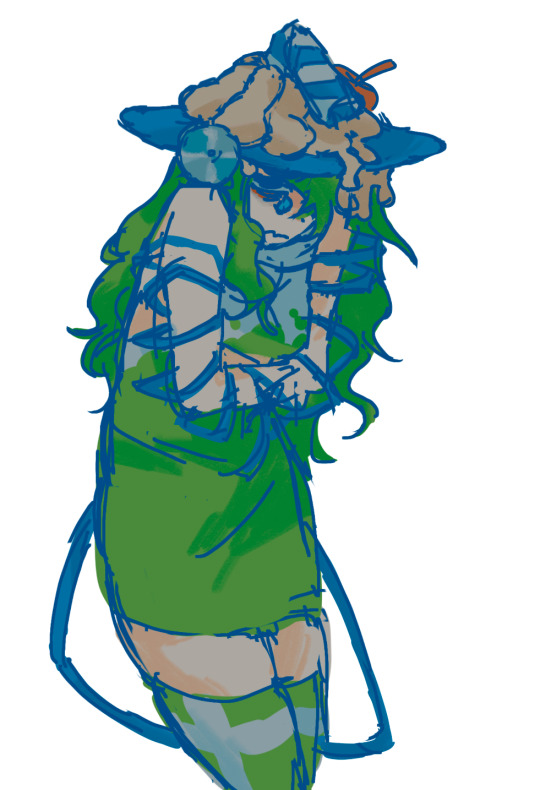
83 i coincidentially drew tia. tia daily has not returned i just drew her ans remembered i also had a whole blog abt her
248 notes
·
View notes
Text
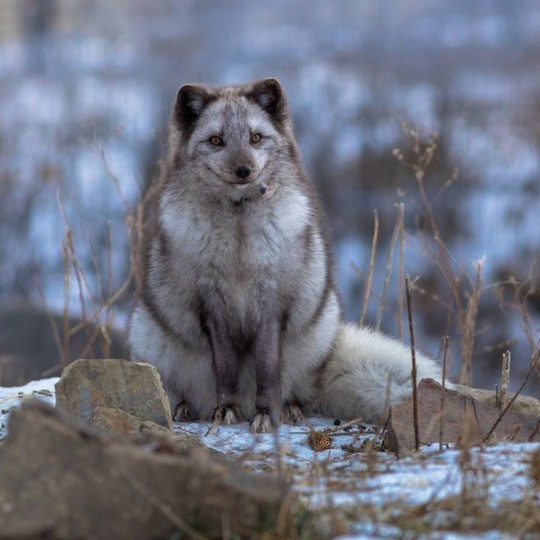
Source
166 notes
·
View notes
Text
" I am not actually tired , but numb and heavy , and can't find the right words "
- Franz Kafka
#books & libraries#quotes#literature#book quotes#writing#spilled thoughts#lit#in the feels#classic literature#2 am poetry#daily posts#daily quote#numb#tired
4K notes
·
View notes
Note
let the silly cat person do silly cat things. like eating. a fish.
grant them a fish. or a mouse (the ones from cyber world)
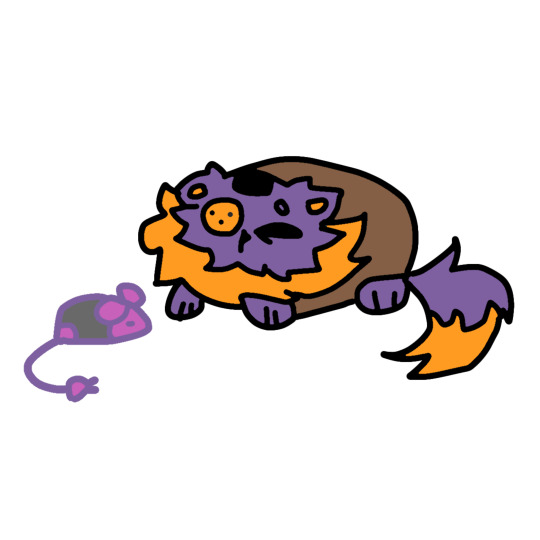
Day 15 of drawing Seam from Deltarune until they finally catch that Maus
59 notes
·
View notes
Text
Posting my favorite FEH Meet the Heroes art every day
Maribelle and Lissa

56 notes
·
View notes
Text

bite it like an apple 🍎
#egirl#cute#girl#tattoos#girl with tattoos#goth#thicc girls#hot egirls#alternative#thigh tattoo#goth gf#goth girl#18+ only#onlytease#+18 or +adult only#onlyfrenz#onlyf@nz#daily posts
126 notes
·
View notes
Text
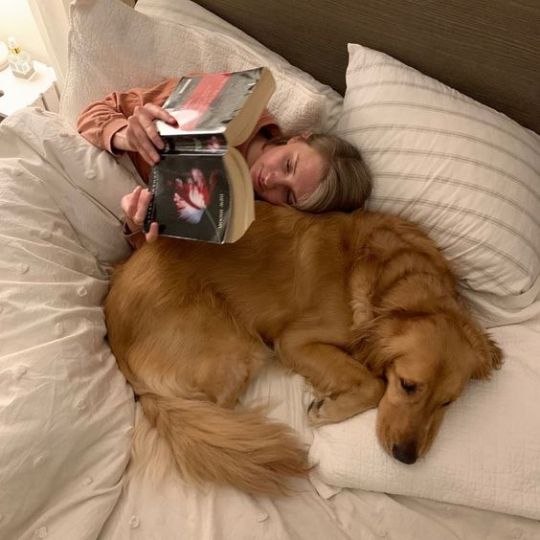


hello, loves
good morning! happy weekend!
this morning has gone smoothly so far, but the weather is still sad and rainy. storm and flood warnings were issued yesterday, so my parents are making me stay home.
yesterday my brother and i played in the pouring rain. it was super run and i felt so little and carefree. one of the reasons i hear people say "get out of the rain!" is that it will make you sick, but we wore our swimmers and i had a warm shower afterwards. just because it has the potential to make you sick does not mean that you have to avoid it. you just have to be smart.
it's 6:43am now, and i have been up since 5. i've done a bunch of contextual research for my english ct2a. this term the book i'm focusing on is 'the hate u give' by angie thomas. it's gotta be one of my favourites and it for sure beats 'to kill a mockingbird' (the other option for this term).
since i'm going to be inside for most of the day, i am going to try and smash out my holiday homework and the study that i didn't get finished this week. something that i've been proud of over this school break is my consistency in practising spanish. i am set on participating in homestay at the end of next year, so i'm trying to do everything to help my chances of acceptance.
i hope you all have a wonderful day (and i hope that your weather is happier than mine).
❤️ joanne
(images are from pinterest)
#elonomh#student#elonomhblog#student life#productivity#study blog#chaotic academia#that girl#academia#becoming that girl#pinterest girl#girblogger#girl blogger#girlblog#this is a girlblog#girlblogging#girlblog aesthetic#study hard#study motivation#studying#100 days of studying#study aesthetic#study inspiration#studyspo#studyblr community#studyblr#ib student#ibdp#daily post#daily posts
24 notes
·
View notes
Photo
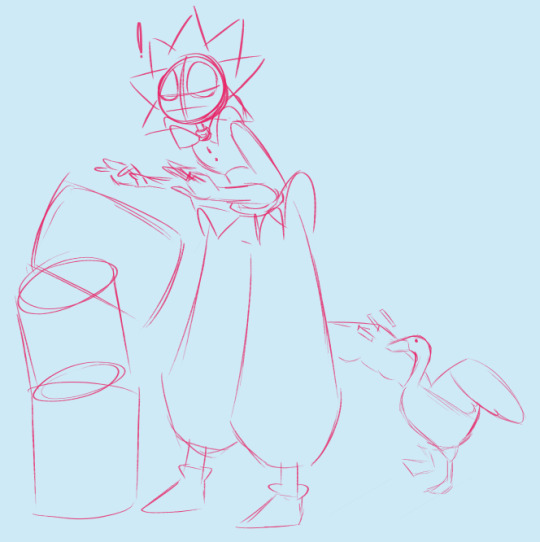
Poor Sun, first Moon, then Gregory, and now he has to deal with this chaotic goose. Will he ever again know peace?
452 notes
·
View notes
Text
📺 DAILY NIKOLAJ COSTER-WALDAU in "The Last Thing He Told Me" ✨
DAY 6️⃣: Part 6 of 7 (Episode 6)
📆 May 31, 2023
(-> Twitter thread)
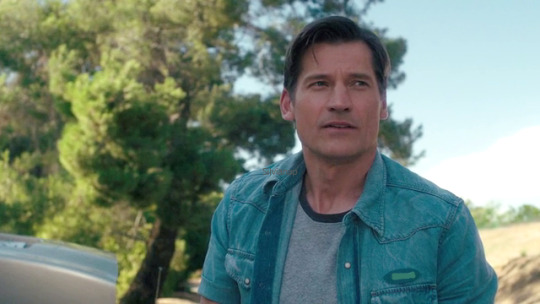
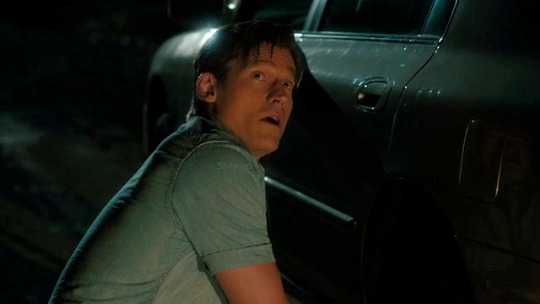


#nikolaj coster waldau#nikolajcw#ncw#the last thing he told me#limited series#apple tv+#owen michaels#daily posts#twitter thread#DAY 6#may 31st#Daily Nikolaj Coster-Waldau#jennifer garner#angourie rice#laura dave
39 notes
·
View notes
Text

A.2.4 Are anarchists in favour of “absolute” liberty?
No. Anarchists do not believe that everyone should be able to “do whatever they like,” because some actions invariably involve the denial of the liberty of others.
For example, anarchists do not support the “freedom” to rape, to exploit, or to coerce others. Neither do we tolerate authority. On the contrary, since authority is a threat to liberty, equality, and solidarity (not to mention human dignity), anarchists recognise the need to resist and overthrow it.
The exercise of authority is not freedom. No one has a “right” to rule others. As Malatesta points out, anarchism supports “freedom for everybody … with the only limit of the equal freedom for others; which does not mean … that we recognise, and wish to respect, the ‘freedom’ to exploit, to oppress, to command, which is oppression and certainly not freedom.” [Errico Malatesta: His Life and Ideas, p. 53]
In a capitalist society, resistance to all forms of hierarchical authority is the mark of a free person — be it private (the boss) or public (the state). As Henry David Thoreau pointed out in his essay on “Civil Disobedience” (1847)
“Disobedience is the true foundation of liberty. The obedient must be slaves.”
#faq#anarchy faq#revolution#anarchism#daily posts#communism#anti capitalist#anti capitalism#late stage capitalism#organization#grassroots#grass roots#anarchists#libraries#leftism#social issues#economy#economics#climate change#climate crisis#climate#ecology#anarchy works#environmentalism#environment#solarpunk#anti colonialism#mutual aid#cops#police
140 notes
·
View notes
Text

78: happy new year! 🎇💫🎉
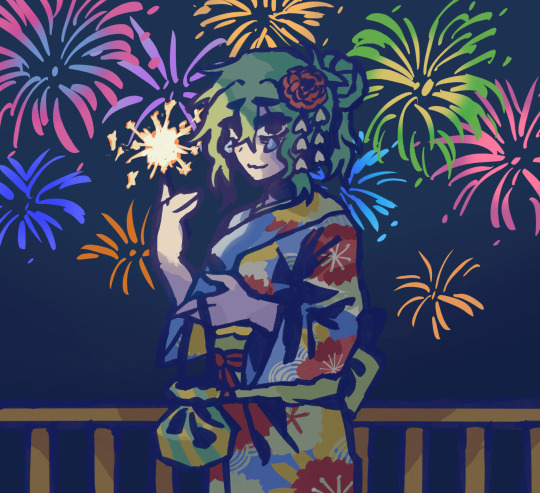
darker alt :-)
187 notes
·
View notes
Text
Hi hi! I'm bee! I really like foxes, artic foxes are my favorite and I think they are underrated! I will attempt to post daily fox pictures, I will try to post a variation of different fox species because they all deserve love!
33 notes
·
View notes
Text
The Panic Button
This is a comically large red button in a somehow less comically sized glass case. Whoever presses this button will instantly become invulnerable, no damage can harm them, and no spells can affect them for 48 hours. However they will also be entirely paralyzed, unable to do anything at all.
This item has one use. When it is out of charges it becomes a normal button.
60 notes
·
View notes
Text

Day 5 of drawing Seam from Deltarune until we see them happy again
58 notes
·
View notes
Text
Posting my favorite FEH Meet the Heroes art every day
Setsuna

92 notes
·
View notes